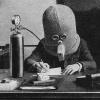Middle Ear Myoclonus Thread
 FW900
17 Apr 2014
FW900
17 Apr 2014
If you do not know, Middle Ear Myoclonus is the twitching of inner ear muscles either randomly or at the noise of certain sounds. There is not much on the internet or PubMed about treating this sensation, so I am hoping that creating a thread about middle ear myoclonus will be of use for people with it. There is not much medical knowledge on treating it with drugs or supplements; currently the procedure for relief involves severing the tensor tympani muscle within the ear. Keppra (Leviracetam) has been used with limited success as well. Each of these are very extreme and carry a wide array of side effects. It is a condition that very few doctors know of therefore experimentation of "what works" for treating it in a general sense has not been explored very much. It is also interesting to point out that several papers on PubMed had subjects who also had multiple sclerosis in addition to the inner ear twitching (I certainly do not have MS, but it's the only thing "in common" that I found precipitates Middle Ear Myoclonus).
If anyone else experiences Middle Ear Myoclonus, please post. In my case, certain notes in higher octaves produce the inner ear twitching.
Has anyone had any success with supplements/drugs to mitigate the twitching response caused by middle ear myoclonus? Personally speaking, I have tried magnesium and phenibut but have found no relief provided by either.
 FW900
02 May 2014
FW900
02 May 2014
Here is a large study which attributes the cause of Middle Ear Myoclonus (MEM) as being "related to stress or noise". Oddly enough, neither of these events precipitated MEM in my case.
http://www.ncbi.nlm....ubmed/23918695/
Tinnitus due to middle ear myoclonus seems to occur in young patients and to be related to stress or noise. Information about the clinical characteristics and therapeutic response of this less-common type of tinnitus will help to ensure early and appropriate diagnosis and treatment of these patients.


